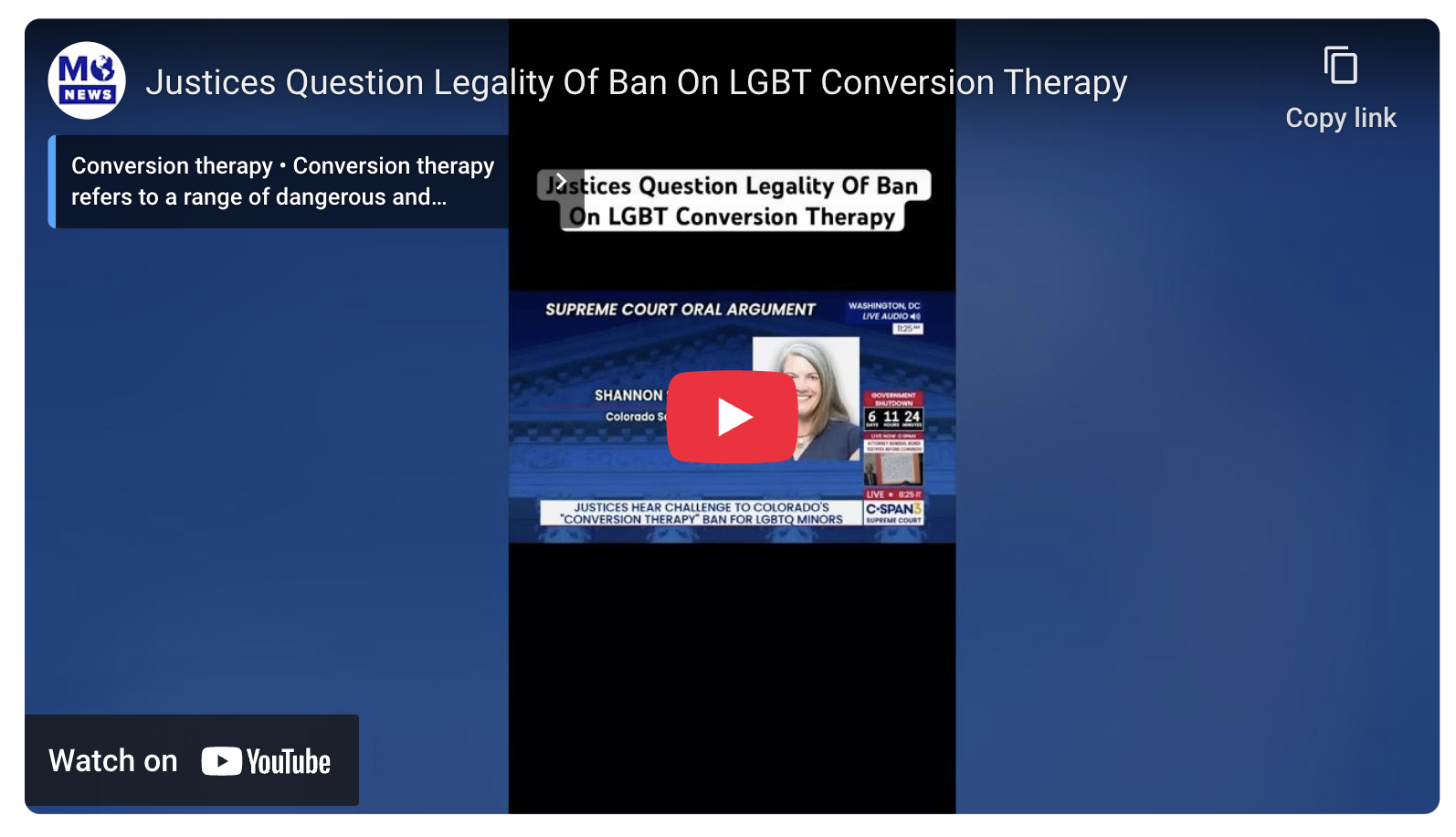Supreme Court Justices Skeptical Of Ban On Conversion Therapy Ban For Minors
The Supreme Court began its new term Monday with a slate of controversial and consequential cases — including one that could shape the future legality of bans on conversion therapy for minors in Colorado and other states.
A majority of the justices appeared sympathetic to a licensed therapist’s argument that Colorado’s ban on conversion therapy violates her First Amendment rights. That could impact similar bans in 24 U.S. states.
A LOOK AT THE CASE
Kaley Chiles, a licensed therapist and evangelical Christian, said she wanted to engage in “faith-informed” talk therapy with patients seeking to change their sexual orientation or gender identity, but that Colorado’s law does not allow it.
Colorado Solicitor General Shannon Stevenson defended the ban, arguing that conversion therapy has proven to be ineffective by medical professionals. She argued that medical guidance, not free speech laws, should dictate whether conversion therapy should be legal.
Conservative Justice Samuel Alito pushed back on whether there was a time when medical professionals believed children with Down syndrome should be institutionalized or that people with low IQs should be barred from having children.
Liberal Justice Ketanji Brown Jackson pressed attorney Jim Campbell, who represents therapist Kaley Chiles, on whether talk therapy should be treated differently from medical treatment under the First Amendment. Jackson suggested two therapists — one using medication, one using only speech — could face different legal outcomes. Campbell agreed, saying Colorado’s ban unfairly restricts speech and “undermines the well-being of kids that are struggling with gender dysphoria.”
The Court’s decision is expected in June, alongside its other major rulings of the term.
LEVEL SET
The arguments comes after the Supreme Court ruled on several prominent cases related to sexual orientation and gender identity last term. These cases are occurring at a time when the number of young people identifying as transgender has risen.
Last term, the Supreme Court ruled to let a Tennessee law remain that bans puberty blockers and hormone therapy for minors seeking to transition.
An upcoming case will look at Republican-backed state laws banning transgender athletes from female sports teams at public schools.
Federal appeals courts ruled against the two states.
MORE TO COME
Many of the cases we will be watching this term will call into question President Trump’s authority, including cases on the legality of Trump’s sweeping global tariffs and his decision to fire Federal Reserve governor Lisa Cook.
TARIFFS: In November, justices will hear arguments over a challenge to the president’s power to impose sweeping global tariffs. Two lower courts have concluded that Trump does not have the authority to unilaterally impose tariffs under an emergency-powers law.
FIRINGS: In December, the Supreme Court will also take up whether Trump has the right to fire independent agency members at will.
The justices have already weighed in on cases brought by the second Trump administration using its “emergency docket” – temporarily granting 20 of Trump’s requests to block lower court orders opposed by the administration.
CHANGING PERCEPTIONS OF THE COURT
The Supreme Court’s new term comes as public views of the Court have been declining—partially based on your political views.
Between the lines: The majority of Republicans (71%) view it favorably, compared to just over a quarter of Democrats (26%).



